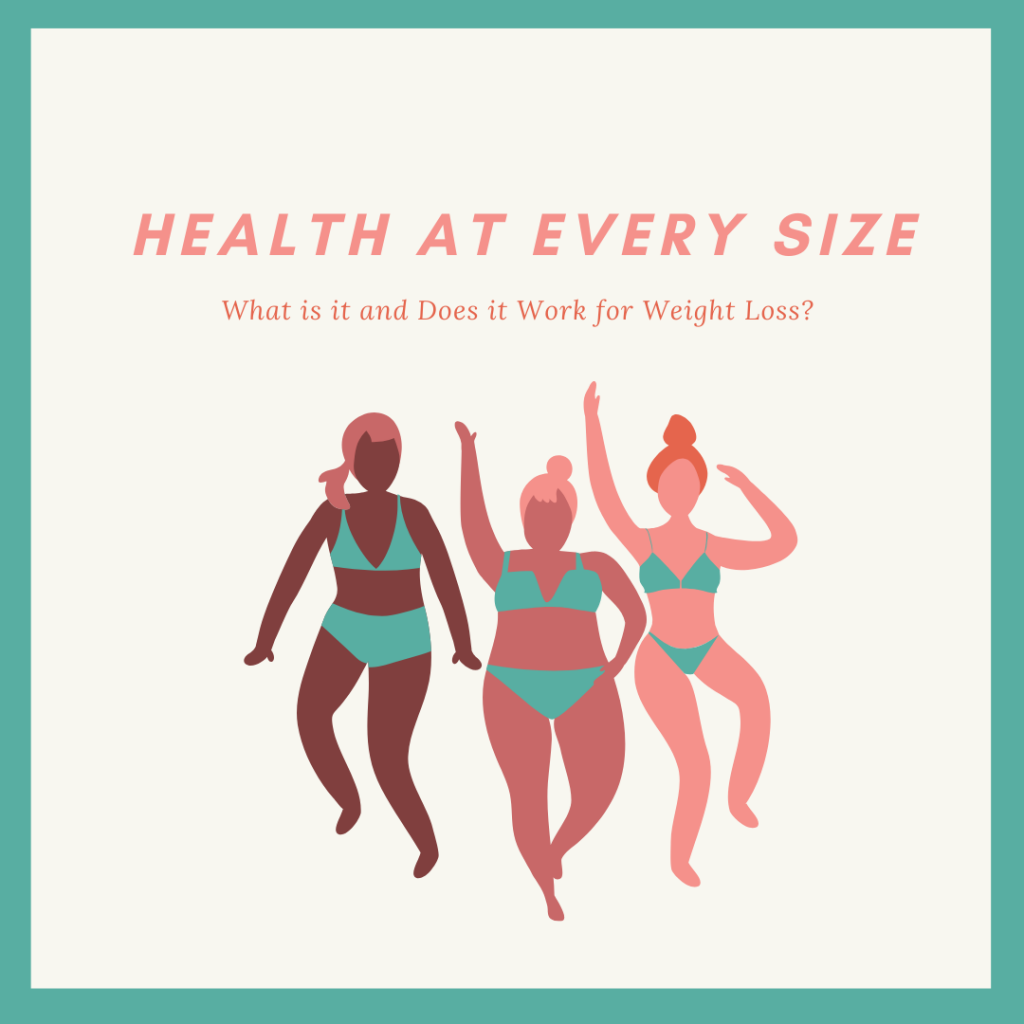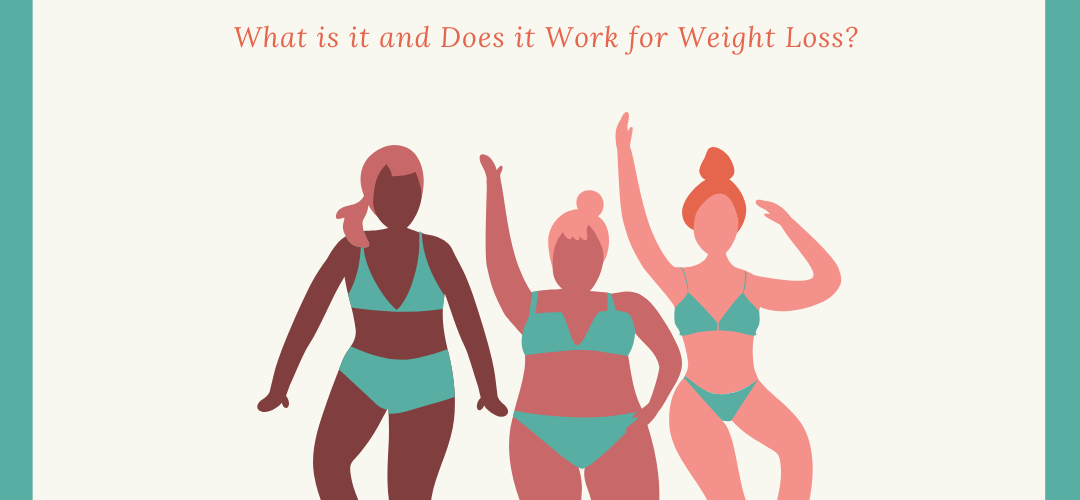
If you’ve tried dieting in the past, you know that it’s pretty difficult to lose weight and keep it off long-term. The Health at Every Size (HAES) approach was developed because of this common experience when following traditional diets1.
The philosophy is based on the idea that bodies are naturally diverse in size, and that accepting this can help us focus on healthy habits rather than the pursuit of a weight loss goal1,2.
HAES emphasizes accepting the ineffectiveness of dieting for the pursuit of weight loss, and speaks to the importance of tuning into your body’s natural hunger and fullness cues2. The HAES philosophy states that someone’s ideal, healthy weight is the weight at which they settle when they are pursuing healthy eating, participating in exercise, and listening to their body’s cues1,2.
A common misconception of HAES is that it is promoting obesity, which is not the case. Instead, it supports the fact that everyone may not be at their healthiest weight right now, but as they move towards healthier behaviours, the weight that they end up at will likely be appropriate, whether it is classified by BMI standards as “overweight” or not1,2.
Is HAES Anti-Weight Loss?
No. The philosophy recognizes that there can be healthy and unhealthy weights for a person’s body3. HAES focuses on healthy behaviours, and if they happen to result in weight loss – okay. If not – also okay3. Instead of focusing on developing healthy behaviours in order to achieve weight loss, HAES wants people to implement these behaviours regardless of whether or not they result in weight loss3.
HAES also recognizes that weight loss does not automatically equal health3. Sometimes weight loss can result in improved health, but sometimes it may not. It may be the underlying behaviour change that is actually responsible for health improvements3.
Benefits of HAES – Can it Work for Weight Loss?
Studies have reported a range of positive health and behaviour changes after the initiation of a HAES-style eating pattern, including healthier food choices5. One study found that women who followed the principles demonstrated a lower susceptibility to hunger4. They also demonstrated a decrease in external hunger, meaning that they were less likely to feel like eating in situations when they weren’t hungry, like eating a doughnut at the office because it’s there4.
Studies have also reported other health benefits, such as improvements in biochemical markers like cholesterol levels and blood pressure1. In another study, women participating in a HAES intervention were found to have improved self-esteem, body image, and less depression compared to controls1,5.
Although the HAES approach may not directly result in weight loss, it can help improve your relationship with food which may lead to weight loss. When we’re better able to listen to our internal hunger cues (rather than what our minds or society tell us), we’re better able to eat to our body’s needs – potentially preventing overeating.
Finally, since the HAES approach can help us make healthier food choices, it’s likely that it can help us maintain weight5. Individuals following a HAES protocol were much more likely to maintain healthy lifestyle changes and health improvements long-term when compared with those participating in dieting interventions1. This is really important, since maintaining dietary changes is one of the hardest parts of dieting.
How Can You Start Introducing the HAES Principles in Your Everyday Life?
You might be wondering where to start. First, we’d suggest checking out some of the resources listed at the end of this article. There’s some great information out there to help you gain a better understanding of what this approach might look like. Once you feel comfortable, start incorporating some more of these practices into your everyday life.
What can you do now? Take on a new healthy behaviour without the goal of weight loss – maybe it’s adding a new recipe to your routine, or trying a new form of movement that you enjoy. See what works best for you!
Contributor: Madeleine Farquhor, BSc., MPH Nutrition and Dietetics (candidate)
Editor: Breanne Drury, RD, MHScEd (candidate)
Posted March 13, 2020
Resources:
- Books: Health at Every Size by Linda Bacon; Body Respect by Linda Bacon; Intuitive Eating by Evelyn Tribole & Elyse Resch
- Podcasts: Nutrition Matters with Paige Smathers; Food Psych with Christy Harrison
- Websites: Health at Every Size Website www.haescommunity.com; The Real Life RD www.thereallife-rd.com
References
- Penney TL, Kirk SFL. The Health at Every Size paradigm and obesity: Missing empirical evidence may help push the reframing obesity debate forward. Americal Journal of Public Health. 2015;105(5):e38-42.
- Robison J. Health at Every Size: Towards a new paradigm of weight and health. MedGenMed. 2005;7(3):13.
- Nohling, R. Health at Every Size is not anti-weight loss or anti-weight loss desires. The Real Life RD [Internet]. Available from: https://www.thereallife-rd.com/2019/06/understanding-haes/.
- Provencher V, Begin C, Tremblay A, Mongeau L, Bovin S, Lemieux S. Short-term effects of a “Health at Every Size” approach on eating behaviours and appetite ratings. Obesity. 2007;15(4):957-966.
- Carbonneau E, Bégin C, Lemieux S, Mongeau L, Paquette MC, Turcotte M, Labonté MÈ, Provencher V. A Health at Every Size intervention improves intuitive eating and diet quality in Canadian women. Clinical nutrition. 2017 Jun 1;36(3):747-54.


